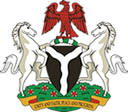Summary
The vast majority of respondents practice safety measures to minimize the risk of contracting the virus. 73% of respondents reported wearing a mask and 77% washing their hands all or most of the time after being in public.
The most readily available COVID-19 preventative measure is washing ones hands with soap and water; however, insufficient access to soap and water for washing is a hindrance for some households, with 24% having insufficient soap and 7% insufficient water for washing hands.
Between April/May and June, the share of respondents working increased in both urban and rural areas, reflecting the easing of the lockdown measures in the country. The commerce and services sectors – those hardest hit by the COVID-19 crisis – as well as the agricultural sector experienced the largest recoveries in the share of respondents working.
Those engaged in non-farm household businesses reported facing challenges associated with COVID-19. The most widely reported challenges faced by non-farm businesses are difficulty raising money (87% of households owning non-farm businesses), difficulty buying and receiving supplies and inputs (77%), and difficulty selling goods and services (70%).
Around 38% of households that engaged in agriculture reported having to modify their farming plans due to COVID-19; out of these, 52% reported reducing the area they planted, 30% planted crops that take less time to mature, and 25% reported delaying planting time.
In June, 30% of households reported that they experienced severe food insecurity due to lack of money and other resources. However, there was no significant increase in access to safety nets or other forms of support.
https
Data source: National Bureau of Statistics
INFOGRAPHICS



